Religion in South and Southeast Asia: Key facts | Pew Research Center
Although post-war Europe has seen major changes in religious affiliation and beliefs with Atheism and acceptance of the scientific view of human origins now the largest demographic by far in many countries, including the UK, the USA continues to be an outlier amongst Western industrial democracies in this regard, with a large number of people believing in magic and the special creation of humans as is, on an Earth that is just a few thousand years old.
Another feature of Western European post-war culture is the presumption that religious freedom comes not from a close association between church and state but by strict secularism, so that many countries that were formerly solidly Catholic or Protestant are increasingly secular. This contrast markedly with American evangelicals, who, whilst not being in the majority in what is also becoming an increasingly secular society, would like nothing more than a theocracy with Christianity even being required to qualify as a 'proper American' and the church being involved in education, the judiciary, the legislature and even the executive, in a Taliban-style theocracy.
As this Pew Research survey shows, American Evangelicals closely resemble South and Southeast Asian Buddhists and Muslims in this respect. The survey is the subject of a report by Jonathan Evans, Kelsey Jo Starr, Manolo Corichi and William Miner and a summary by Jonathan Evans.
It shows that in "three Buddhist-majority countries (Cambodia, Sri Lanka and Thailand) and two Muslim-majority countries (Malaysia and Indonesia), as well as the religiously diverse country of Singapore", religion is an important part of everyday life with both Buddhism and Islam having some similarities in terms of belief, personal and national identity and to what degree it should be involved in politics, laws and customs. In all these measures, religion, regardless of the sect, had a remarkable similarity to Evangelical Christianity in the USA, especially amongst the far-right Christian Nationalists.
Religion usually inherited from parents:
In most countries, as in the USA and Europe, not surprisingly given the close association between religion and geography, there is a strong likelihood that a person will have the same religion as their parents.
In most countries, as in the USA and Europe, not surprisingly given the close association between religion and geography, there is a strong likelihood that a person will have the same religion as their parents.
Tollerance for other religions
When it comes to tolerance for people with different religions to their own living amongst them, most people say they think religious diversity makes their country a better place to live in. Only Cambodia and Thailand fall significantly below 50% in this respect.
When it comes to tolerance for people with different religions to their own living amongst them, most people say they think religious diversity makes their country a better place to live in. Only Cambodia and Thailand fall significantly below 50% in this respect.
However, when asked what role they believe their religion should play in national political life, a rather different picture emerges; like American Evangelical Christians, a large majority of Buddhists and Muslims believing their religion should be active in national politics, national laws and national identity, which equates to the belief that their religion should be mandated onto others in their respective countries. Both Buddhists and Muslims strongly associate national identity with their religion and favour basing national laws on it. Again, the similarity with American Evangelical Christians is marked.
Curiously, and in this respect unlike American Evangelical Christians, South and Southeast Asian people are more inclined to allow aspects of other religions into their religious practices and cultural life, even though they may be inconsistent with basic tenets of their religion and even considered blasphemous, like strictly monotheist Muslims and Christians recognising other gods:
Age difference.
Perhaps surprisingly, unlike western countries, where younger people are significantly less likely to be religious or to identify with any particular religion and more likely to accept a materialist, scientific view of reality, South and Southeast Asian youngsters are slightly more likely to believe in spirits. Although the 18–34-year-old age group are less likely (51% against 59% for 35+) to consider it important to perform rituals for the souls of a dead relative in a place of worship. and significantly fewer 18–24-year-old (53% compared to 70% for 35+) say religion is very important in their lives, so there are tentative signs that religion is losing its grip on the younger generations of South and Southeast Asian people.
Perhaps surprisingly, unlike western countries, where younger people are significantly less likely to be religious or to identify with any particular religion and more likely to accept a materialist, scientific view of reality, South and Southeast Asian youngsters are slightly more likely to believe in spirits. Although the 18–34-year-old age group are less likely (51% against 59% for 35+) to consider it important to perform rituals for the souls of a dead relative in a place of worship. and significantly fewer 18–24-year-old (53% compared to 70% for 35+) say religion is very important in their lives, so there are tentative signs that religion is losing its grip on the younger generations of South and Southeast Asian people.
There, superstitions continue to play a leading role in daily life and large numbers of people still think they should play an active part in all aspects of political and cultural life, with their religion setting the political and legislative framework for society, regardless of the presence of other religious minorities.
In those countries, belief in gods, magic and spirits has so far not given way to scientific rationalism.

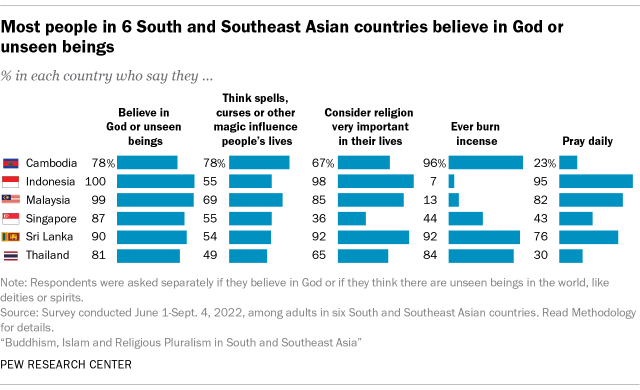
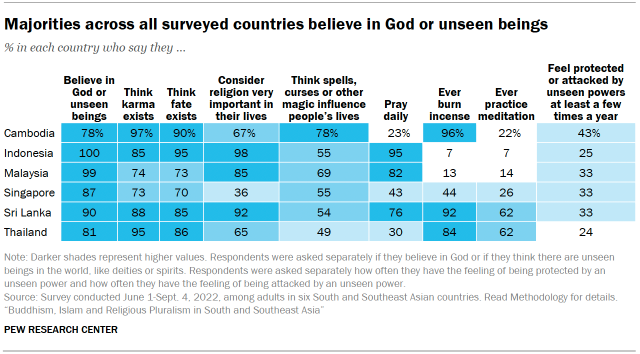
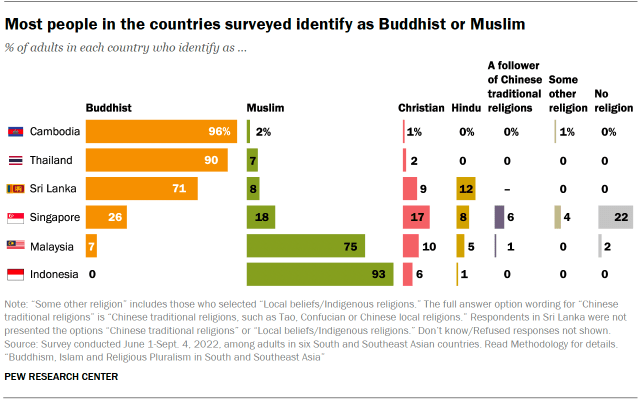
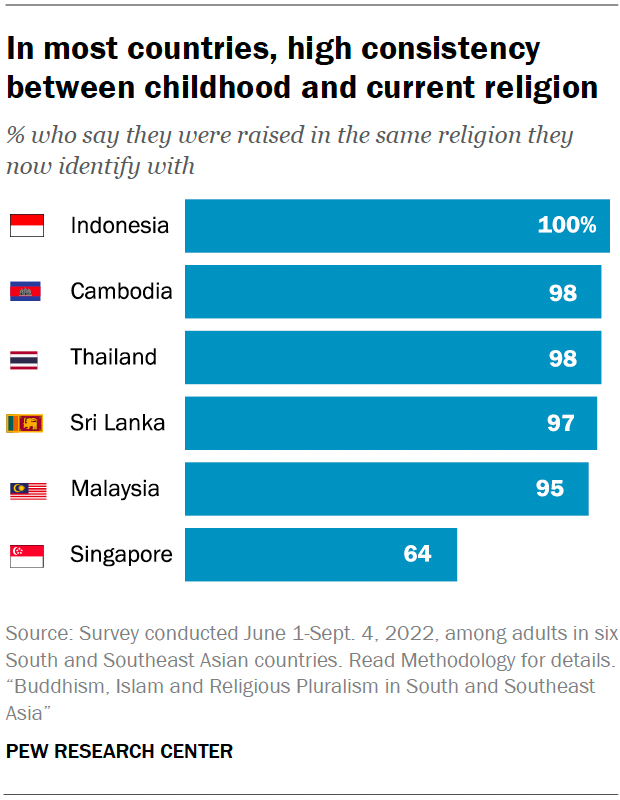
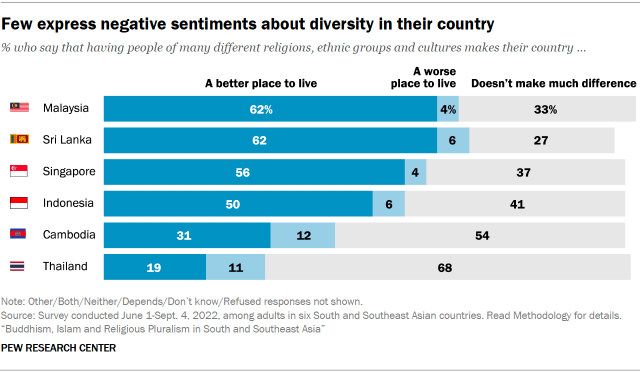
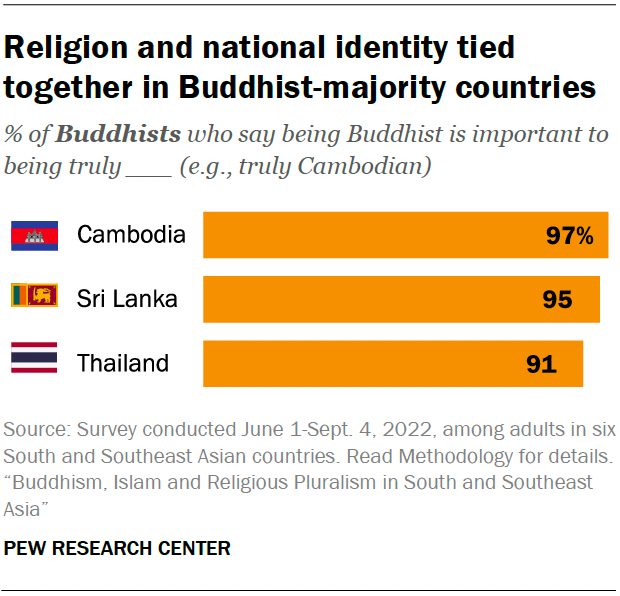
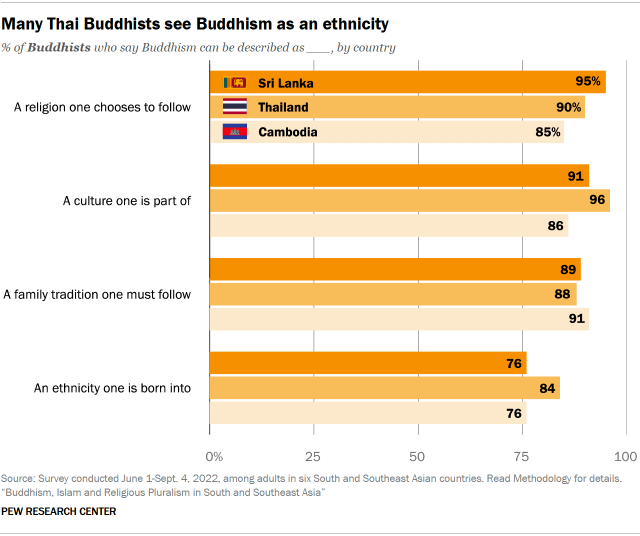
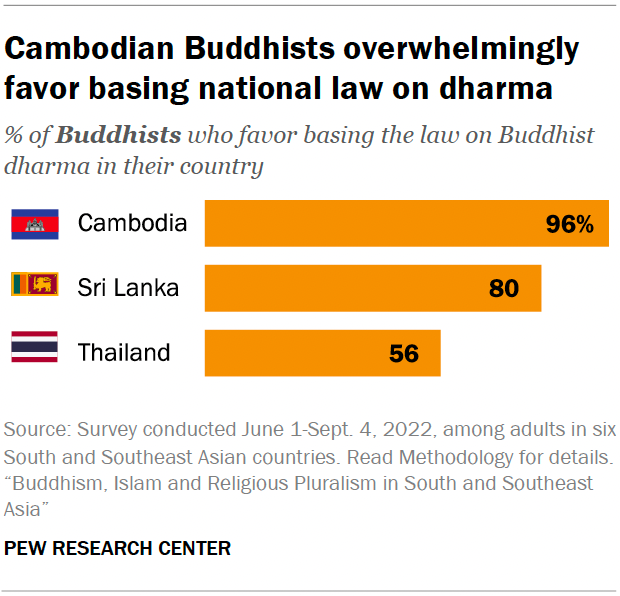
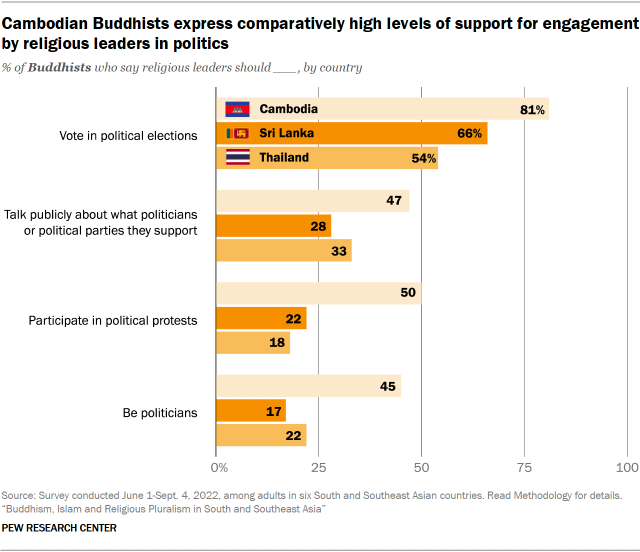
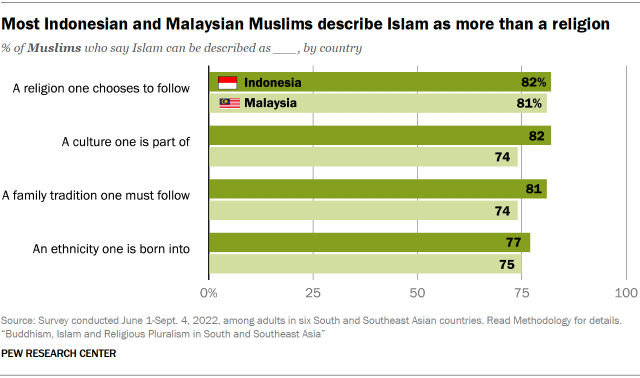
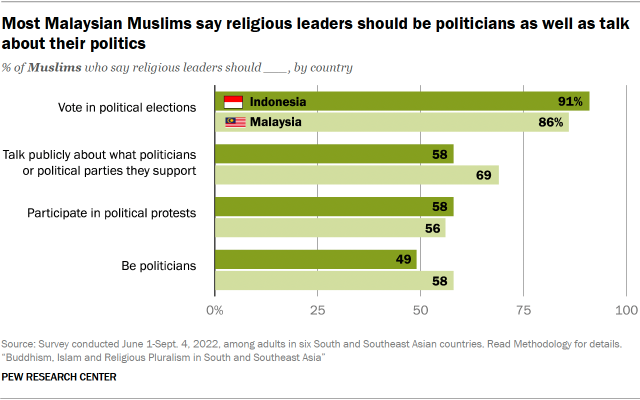
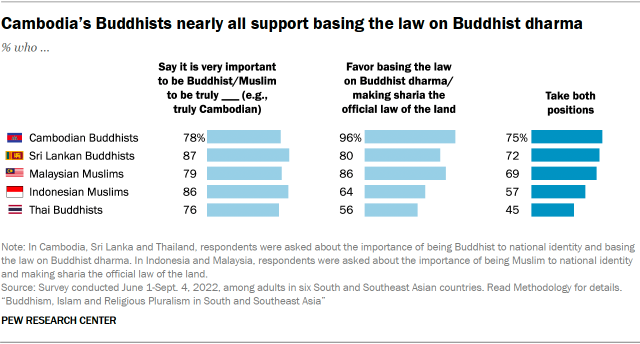
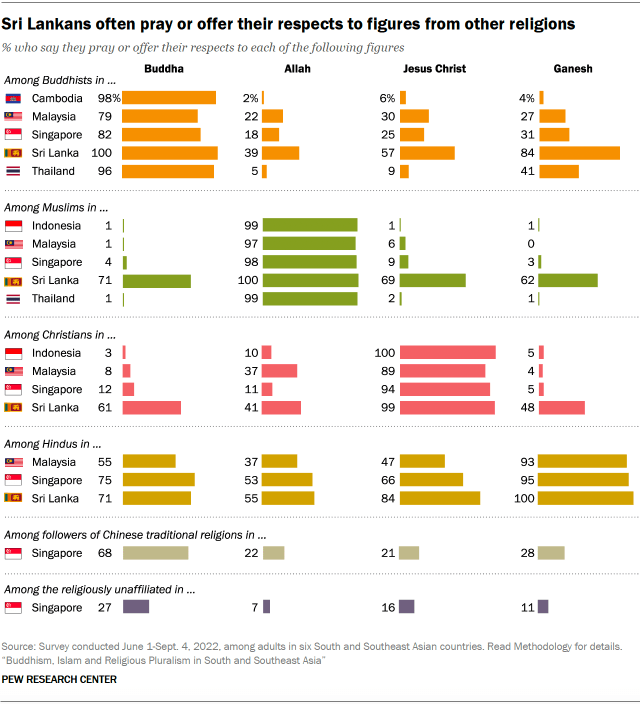
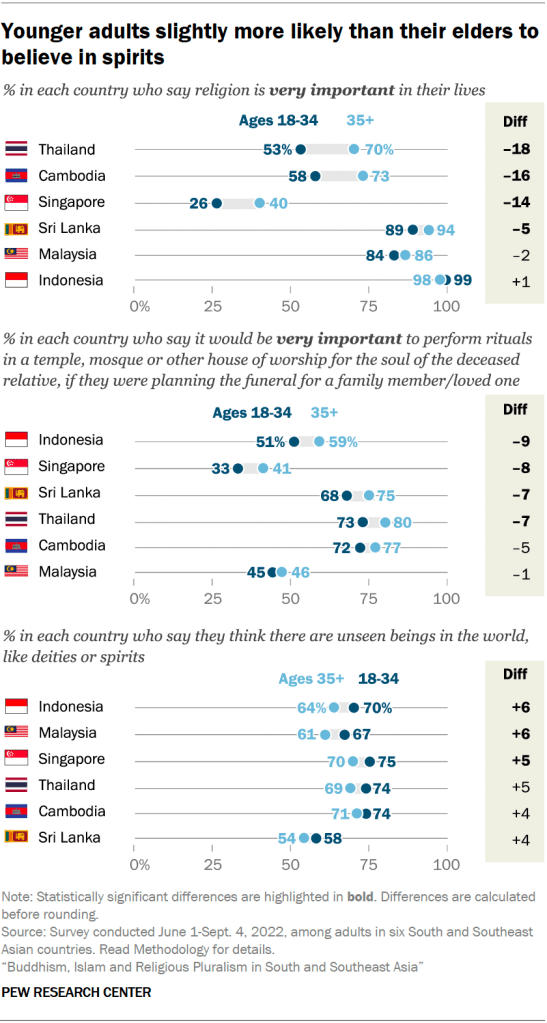
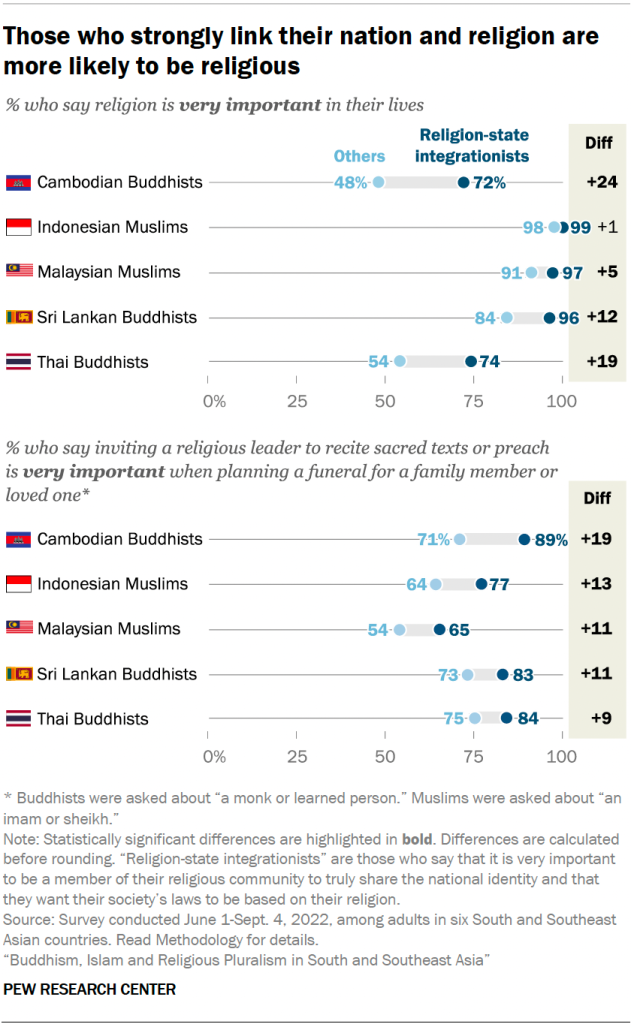
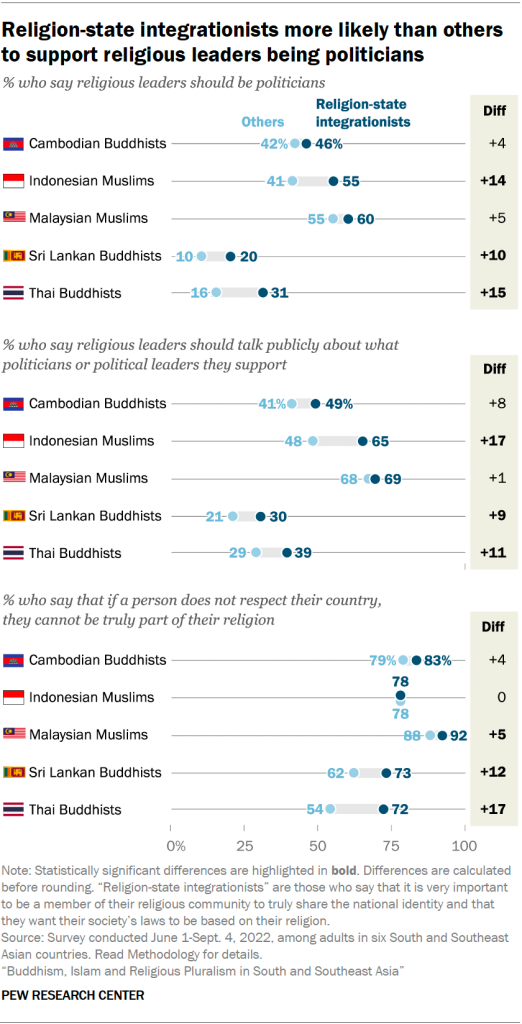
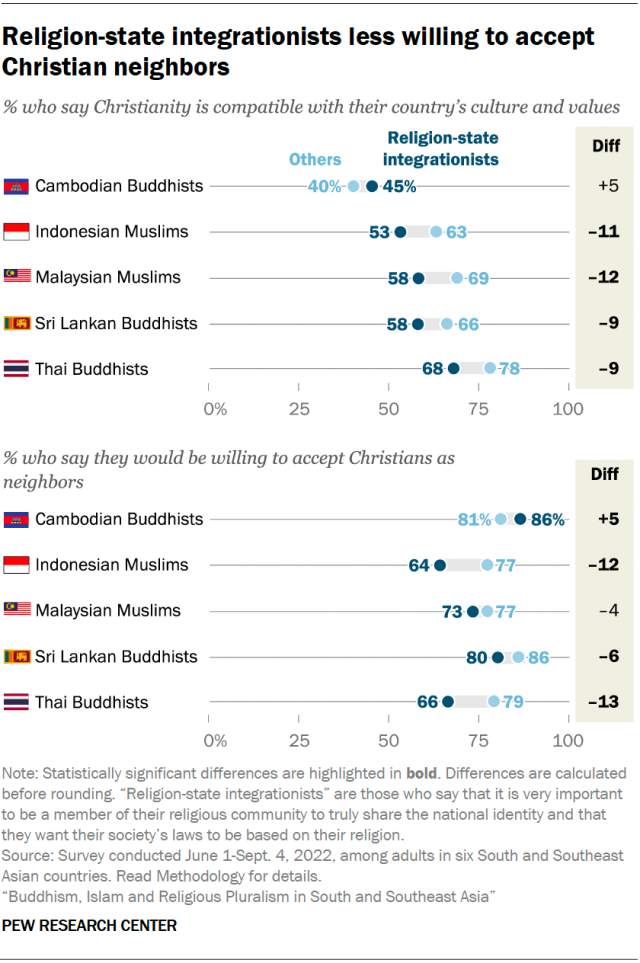


No comments :
Post a Comment
Obscene, threatening or obnoxious messages, preaching, abuse and spam will be removed, as will anything by known Internet trolls and stalkers, by known sock-puppet accounts and anything not connected with the post,
A claim made without evidence can be dismissed without evidence. Remember: your opinion is not an established fact unless corroborated.